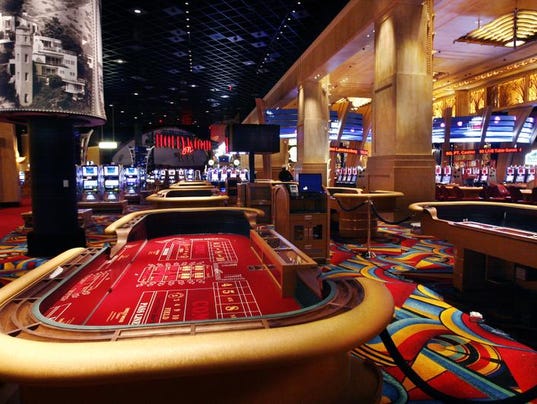Indiana’s casino tax revenues have fallen faster than expected over the past six months, plunging nearly 15 percent amid more out-of-state competition and lagging admissions as consumers try to shake off the aftereffects of the recession.
Indiana saw a $50 million drop in casino tax revenues since June when compared with a year earlier. That’s about $5 million more than state officials had forecast.
Casino Association of Indiana President Mike Smith and Indiana Gaming Insight editor Ed Feigenbaum agreed Monday that the recession’s lingering pressures on consumers play a role not just in Indiana but nationwide.
The money the state collects from casino taxes has dropped from a peak of nearly $876 million in 2009 to about 752 million in fiscal 2013, according to figures from the Indiana Gaming Commission. Indiana’s three casinos near Cincinnati have seen big declines since a downtown casino opened in the Ohio city last March.
In recent years, Indiana’s casino industry has pleaded with state legislators for economic protection from increasing out-of-state competition. But some Indiana lawmakers last year said they were ready to let the casinos try to survive on their own.
This year, the only bills submitted related to gambling involve charity games, not casinos.
An annual report by the Indiana Gaming Commission’s executive director, Ernest Yelton, put the biggest share of the blame for lower tax revenue on out-of-state casinos, but acknowledged that “a confluence of a lackluster economy, competition and legislative relief” were all involved in the drop.
“We’ve seen revenue drop in every calendar year since the recession in 2009,” said Ed Feigenbaum, editor of Indiana Gaming Insight, which tracks gambling in the state.
While competition has had a “tremendous effect,” Feigenbaum said, “It’s more complicated than that.”
Fewer people have been going to casinos in recent years simply because they can’t afford it, he said.
“People don’t have as much disposable income, they don’t have as much money they can spend,” Feigenbaum said. “They used to choose between going to a high school basketball game or the casino. Now, it’s between going to the casino or paying their mortgage.”
Mike Smith, president of the Casino Association of Indiana, agreed.
“I think ever since we had the major recession, it’s just taking a lot longer for us to get back to where we were,” he said Monday.
Nor is Indiana alone, both men said.
“Every other market in the country has seen the same thing happen,” Feigenbaum said, including Las Vegas, the magnet of American gambling.
Casino revenue at the nation’s second-most popular site, Atlantic City, fell below $3 billion last year for the first time in 22 years. It marked the seventh straight year of plunging gambling revenue.
Copyright 2013 The Associated Press. All rights reserved. This material may not be published, broadcast, rewritten or redistributed.
| < Prev | Next > |
|---|







 Copyright © 2025 ToCasino.net Online Casino. All Rights Reserved. Designed by
Copyright © 2025 ToCasino.net Online Casino. All Rights Reserved. Designed by